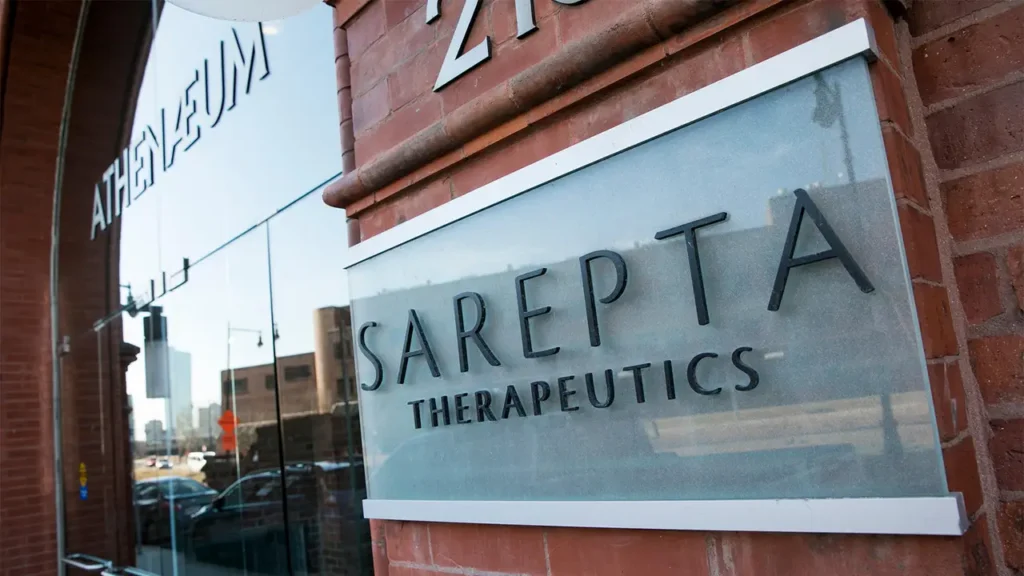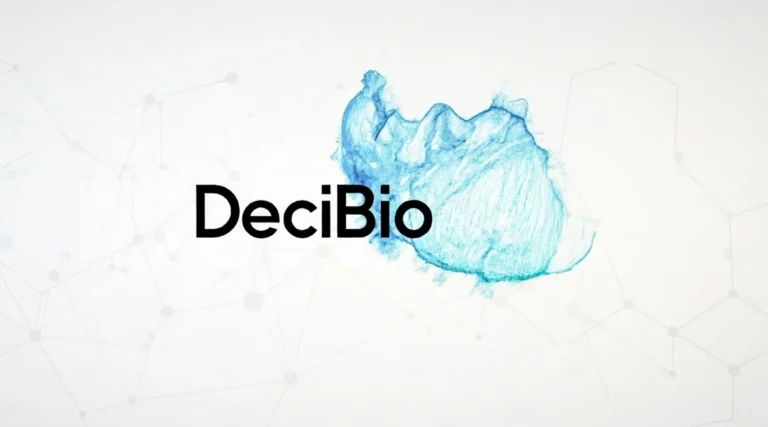
Sarepta Therapeutics Restructures $700 Million in Convertible Debt, Extending Maturities and Strengthening Financial Flexibility
Sarepta Therapeutics, Inc. (NASDAQ: SRPT), a leader in precision genetic medicine focused on rare diseases, has announced a significant refinancing transaction designed to strengthen its capital structure, extend its debt maturities, and provide greater financial flexibility as it advances its pipeline of genetic therapies.
The company revealed that it has entered into a series of privately negotiated exchange agreements with select institutional holders of its 1.25% convertible senior notes due 2027. Under these agreements, approximately $700 million of the outstanding notes will be exchanged for a combination of new 4.875% convertible senior notes due 2030, Sarepta common stock, and cash.
This move represents a proactive step by Sarepta’s management team to optimize the company’s balance sheet while positioning it for upcoming clinical readouts and commercial initiatives. With rare disease drug development requiring significant and sustained capital investments, the refinancing aims to provide Sarepta with a more resilient financial foundation.
Transaction Structure
The refinancing, referred to as the Exchange, involves multiple components:
- New Convertible Notes: Sarepta will issue approximately $602 million in aggregate principal amount of new 4.875% convertible senior notes due 2030. These notes will have an initial conversion rate of 16.6667 shares per $1,000 principal, equivalent to an initial conversion price of $60.00 per share.
- Equity Component: Holders participating in the exchange will also receive up to 6.7 million shares of Sarepta’s common stock.
- Cash Consideration: The company will pay approximately $123.3 million in cash as part of the settlement.
The implied conversion premium of the new notes is notable. At $60.00 per share, the conversion price reflects a 191.5% premium over Sarepta’s last reported closing price of $20.58 on August 20, 2025. This indicates that investors were willing to accept terms significantly above Sarepta’s current stock price, a potential vote of confidence in the company’s future prospects.

Following the completion of the exchange, approximately $450 million of the original 2027 notes will remain outstanding under their existing terms. The new 2030 notes will be governed by an indenture to be executed with U.S. Bank Trust Company, National Association, acting as trustee.
The transactions are expected to close on or about August 28, 2025, subject to customary closing conditions.
Strategic Rationale
Sarepta framed the refinancing as an essential step in its long-term financial strategy. According to Doug Ingram, president and chief executive officer of Sarepta, the transaction strengthens the company’s capital position while giving it more time to execute on its ambitious research and development agenda:
By extending the maturity of a meaningful portion of our convertible notes to 2030, we have completed a shareholder-friendly transaction that significantly enhances our balance sheet flexibility and strengthens our financial position. With our go-forward cash flows and liquidity, we believe we are well positioned to fully fund our pipeline and meet our near-term obligations. This allows us to focus on our base business and the upcoming readouts from our pipeline, including our siRNA programs, as we continue to pursue our mission to transform the lives of patients with rare diseases.”
This statement highlights several strategic goals:
- Maturity Extension – Pushing debt obligations from 2027 to 2030 relieves short-term refinancing risk.
- Balance Sheet Strengthening – The combination of equity and cash provides immediate liquidity relief and helps manage leverage.
- Pipeline Funding – Sarepta is advancing a broad portfolio of genetic medicines, including gene therapy and RNA-based therapies. Ensuring adequate funding is essential for sustaining these efforts.
- Investor Alignment – By structuring the exchange at a substantial conversion premium, Sarepta avoided heavy dilution at current stock prices, protecting existing shareholders.
Broader Financial Context
The refinancing comes at a critical juncture for Sarepta. The company has been investing heavily in its gene therapy programs for Duchenne muscular dystrophy (DMD), among other rare diseases. These programs are costly, requiring substantial clinical development expenditures, manufacturing scale-up, and commercial readiness.
Like many biotech firms, Sarepta relies on a balance of product revenue, partnerships, and capital markets transactions to fund operations. While Sarepta has commercial products on the market, including therapies for DMD, the company continues to face losses as it prioritizes reinvestment into research and development.
Convertible debt has been a key financing mechanism for biotech companies because it offers relatively low interest rates compared to traditional debt. However, as market conditions evolve and maturities approach, companies must manage the risk of large debt repayments or dilutive conversions. By addressing its 2027 maturities early, Sarepta reduces uncertainty and signals proactive financial stewardship.
Equity Placement with J. Wood Capital Advisors
In addition to the exchange, Sarepta has also entered into a subscription agreement with J. Wood Capital Advisors LLC. Under this arrangement, the firm will privately place up to 1.4 million shares of Sarepta common stock.
This equity placement, combined with the note exchange, provides Sarepta with additional liquidity and demonstrates ongoing support from capital markets partners. J. Wood Capital Advisors also served as Sarepta’s financial advisor in connection with the refinancing.
Legal and Regulatory Framework
The newly issued securities—the New Convertible Notes and associated shares of common stock—are being offered in a private placement. They are not registered under the Securities Act of 1933, and as such, may not be publicly offered or sold in the United States absent an exemption from registration requirements.
Sarepta emphasized that its press release does not constitute an offer to sell or solicit an offer to buy these securities in any jurisdiction where such actions would be unlawful. This language is standard for capital markets transactions of this nature.
Implications for Shareholders
From a shareholder perspective, the transaction carries both benefits and risks.
- Reduced Near-Term Debt Pressure: By shifting maturities to 2030, Sarepta mitigates refinancing risk over the next five years.
- Improved Flexibility: The company gains greater freedom to allocate resources toward its pipeline without the overhang of a looming 2027 maturity wall.
- Potential Dilution: The issuance of up to 6.7 million new shares as part of the exchange, plus an additional 1.4 million shares through the subscription agreement, introduces dilution. However, the high conversion premium reduces the immediate likelihood of conversion at current share price levels.
Analysts may view the move as prudent balance sheet management. It is particularly notable that investors accepted a 191.5% premium conversion price, which suggests confidence in Sarepta’s long-term value creation.
With the refinancing expected to close by the end of August, Sarepta will soon benefit from the extended maturities and enhanced liquidity profile. This positions the company to focus on its operational and clinical milestones, including:
- Advancing its siRNA-based programs, which aim to expand Sarepta’s therapeutic modalities beyond gene therapy.
- Continuing to generate data and regulatory interactions for its DMD gene therapy portfolio.
- Scaling its manufacturing infrastructure to support potential broader commercial rollouts.
- Maintaining engagement with patient communities and advocacy organizations that are central to rare disease innovation.
As Sarepta’s pipeline progresses, the strengthened financial foundation provided by this refinancing should enable the company to weather market volatility and sustain long-term investment in transformative therapies.
Sarepta Therapeutics’ $700 million refinancing transaction represents more than just a financial restructuring—it reflects a strategic recalibration designed to support the company’s mission of delivering breakthrough genetic medicines to patients with rare diseases. By extending maturities, balancing debt with equity, and preserving cash flow, Sarepta has taken a proactive step to ensure that it can continue advancing its pipeline while safeguarding shareholder interests.
In a capital-intensive industry where access to funding can determine the pace of innovation, Sarepta’s exchange and equity placement are timely moves that may reassure investors, strengthen partnerships, and sustain the company’s momentum in the rare disease space.





